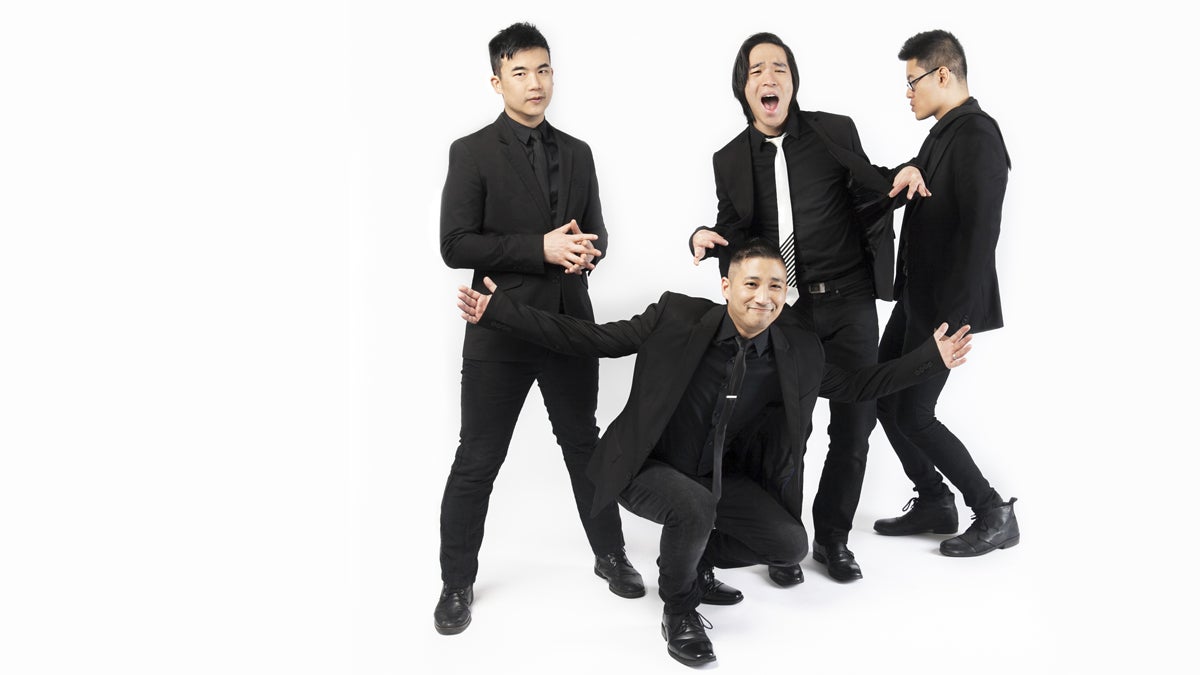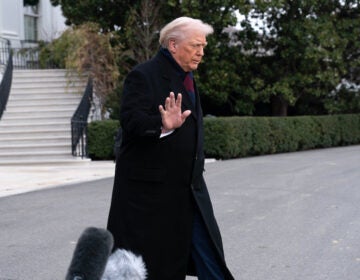SCOTUS just confirmed a First Amendment right to offensive trademarks

This publicity photo shows the Asian-American rock band called The Slants. The Supreme Court on Monday struck down part of a law that bans offensive trademarks. The case was closely watched for the impact it would have on the separate dispute involving the name of the Washington Redskins football team. (In Music We Trust via AP)
The word police just got put on notice: Your power to arrest, detain, and shame people who don’t share your view of “offensive” was circumscribed this week by the Supreme Court.
On Monday, the high court invalidated parts of the 71-year-old Lanham Act that barred the trademark registration of terms that disparage certain groups. According to the federal law, trademarks that “may disparage … persons living or dead, institutions, beliefs or national symbols, or bring them into contempt or disrepute” were prohibited.
Writing for the majority, Justice Samuel Alito held that “This provision violates the Free Speech Clause of the First Amendment …. It offends a bedrock First Amendment principle: Speech may not be banned on the ground that it expresses ideas that offend.”
You would think that this was a self-evident principle: Just because you don’t like what I have to say doesn’t mean you get to stop me from saying it (unless, of course, you don’t like me shouting “Fire!” in a crowded movie theater.) But lately, with the rise of political correctness, the verbal land mines that have cropped up in our civic conversations have become simultaneously more numerous and less obvious.
You cannot use the “n” word if you are not black and hip and hanging with your friends, as Bill Maher recently learned. You cannot make certain stereotypically disparaging comments about women who simply can’t stop chattering, as David Bonderman, a “former” board member at Uber found out to his dismay. You can’t say a lot of things, even in jest, that make certain minority groups uncomfortable, because of global warming and the snowflake factor.
But now, at least, you can call your Asian-American rock band the “Slants” and register the name as a trademark, because the Supreme Court just held that the First Amendment protects your right to be offensive. And that’s very good news for Dan Snyder and his “football team that plays in Washington.”
In fact, it looked for a while like we were going to have to call that historic franchise that gave us Sonny Jurgenson, Joe Theisman, Art Monk, and John Riggins “the Washington Indigenous.” But thanks to Justice Alito and some common sense, Mr. Snyder is going to have some serious ammunition in his battle to keep calling his team “The Washington Redskins.”
That’s because the high court held that we can’t compromise our societal belief in free speech, even when that speech causes some people to react with horror, revulsion, anger, or simply discomfort (and no, I’m not referring to Donald Trump’s tweets, but thank you for the reminder).
I remember a few years ago when a beloved sandwich shop in Philadelphia called “Chink’s” after its owner’s nickname was forced to change its name because Asian-Americans were absolutely outraged that this affront to their heritage could be allowed within city limits (even though it had flourished for decades before anyone realized they should be offended in the first place).
I’ve had people raise their eyebrows at me when I’ve referred to some relatives’ homemade wine as “dago red,” tsk-tsking at my politically incorrect reference to my ancestral version of moonshine.
And I’ve been very careful not to inadvertently use many words that begins with the letter “n,” including “niggardly,” “Niger” and “Negroni” unless I can explain the context and include footnotes.
So that’s why I’m gratified that the Supreme Court realized that making the rights and privileges of the Bill of Rights subject to some forced form of etiquette is a dangerous thing. Sure, there are reasons not to deliberately hurt someone’s feelings. Libel and slander are, after all, grounds for a lawsuit.
But there is a limit, and the line is drawn broadly so that we don’t impinge on a citizen’s right to express him or herself as freely as possible, even when that has the possibility of giving someone the vapors.
Ironically, I’ve recently decried the rise in hateful rhetoric that we hear in our public conversations, both virtual and real. The toxicity of our speech has led to deep, seething divisions as well as encouraged some politically-motivated zealots to target public figures whose policies and philosophies they abhore.
But there’s a big difference between asking for people to conduct themselves with dignity and tolerance for diverse opinions, and quite another to have the government mandate good manners.
Fortunately, the Supremes just confirmed our right to be offensive.
WHYY is your source for fact-based, in-depth journalism and information. As a nonprofit organization, we rely on financial support from readers like you. Please give today.




